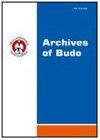Is karate effective in improving postural control
IF 1.5
3区 医学
Q3 SPORT SCIENCES
引用次数: 41
Abstract
Background: Performing complex motor skills, such as the ones performed by karate athletes, requires a great sense of balance. Because the posturo-kinetic performance seems to be improved by sport practice, especially by sports involving a lot of posturokinetic activities, the aim of this review was to critically analyse the scientific literature in order to appraise whether any positive correlation between karate and improved postural control is scientifically supported. Material/Methods: The online search engines Scirus and Medline were used for generating the data. A comprehensive literature search was conducted based on the following keywords: “karate”, “postural control” and “body sway”. Results were collected and filtered manually. Results: Four articles were identified related to karate practice and postural control, covering a period between 1998 and 2009. Although different experimental approaches were used to investigate this concept, overall the results of these studies confirm the effectiveness of karate in improving postural control. Conclusions: Practicing karate seems to elicit long term improvements in postural control. However, a much deeper approach to this fighting sport, which would take into account its technical specificities (e.g. kata & kumite), is required in order to increase our understanding of the posture-kinetic impact of this relatively unexplored sport activity.空手道对提高姿势控制有效吗
背景:执行复杂的运动技能,如空手道运动员所做的,需要很强的平衡感。由于姿势-动力表现似乎可以通过运动练习得到改善,特别是通过涉及大量姿势-动力活动的运动,本综述的目的是批判性地分析科学文献,以评估空手道和姿势控制改善之间是否存在正相关的科学支持。材料/方法:使用在线搜索引擎Scirus和Medline生成数据。以“空手道”、“姿势控制”、“身体摇摆”为关键词,进行全面的文献检索。结果是手工收集和过滤的。结果:选取1998 - 2009年间有关空手道练习和体位控制的文章4篇。虽然不同的实验方法被用来研究这个概念,但总的来说,这些研究的结果证实了空手道在改善姿势控制方面的有效性。结论:练习空手道似乎可以长期改善姿势控制。然而,为了增加我们对这项相对未开发的运动的姿势动力学影响的理解,需要对这项搏击运动进行更深入的研究,考虑到它的技术特点(如形和对打)。
本文章由计算机程序翻译,如有差异,请以英文原文为准。
求助全文
约1分钟内获得全文
求助全文
来源期刊

Archives of Budo
SPORT SCIENCES-
CiteScore
2.80
自引率
47.60%
发文量
0
审稿时长
>12 weeks
期刊介绍:
Archives of Budo is an international peer reviewed journal publishing articles on various aspects of the sports sciences covering education and research in martial arts and combat sports, and related areas like biomechanics, kinesiology, medicine, psychology, sociology, technologies of sports equipment, research in training, selection, performance, survival, and other interdisciplinary perspectives.
Archives of Budo editors endorse the principles embodied in the Helsinki Declaration and expect that all research involving humans has been performed in accordance with these principles. All human studies must have been approved by the investigator''s Institutional Review Board. A copy of the relevant documentation should be included with the manuscript. Furthermore Archives of Budo follows the ICMJE''s Recommendations for the Conduct, Reporting, Editing and Publication of Scholarly Work in Medical Journals.
Archives of Budo provides free, immediate and permanent online access to the full text of all articles distributed under the terms of the Creative Commons Attribution Non-commercial License http://creativecommons.org/licenses/by-nc/4.0), which permits use, distribution, and reproduction in any medium, provided the original work is properly cited, the use is non-commercial and is otherwise in compliance with the license.
 求助内容:
求助内容: 应助结果提醒方式:
应助结果提醒方式:


